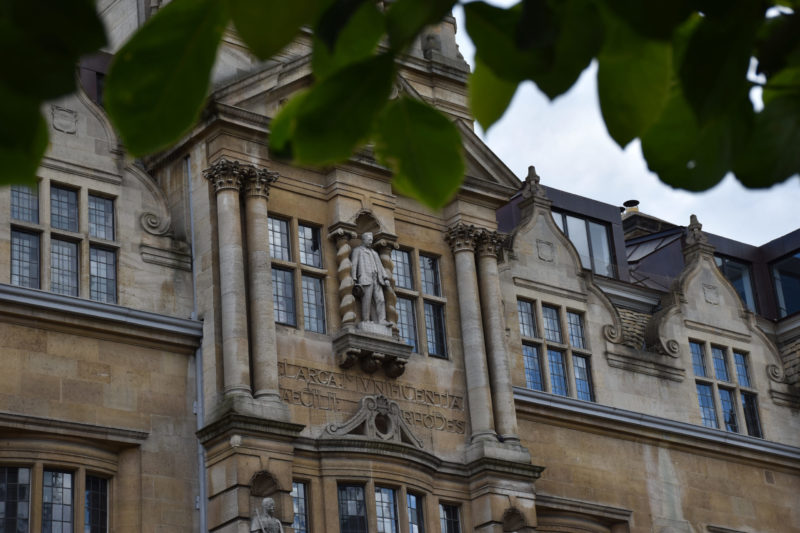Academics at Oxford University are standing in solidarity with Oriel College students and staff after the institution refused to address concerns over a campus statue venerating Victorian imperialist Cecil Rhodes.
A senior academic at Oxford has suggested that a sign of apology should be hung around the neck of the statue of the known white supremacist after the college backtracked on plans to remove the statue back in 2020.
In addition to petitioning for the removal of the statue, about 150 academics at Oxford University are refusing to engage in additional duties on behalf of Oriel College including outreach work and admissions interviews. Oxford academics will continue to complete their core teaching duties, however.
Academics are angry after Oriel College backtracked on their commitment to have the statue removed back in 2020, citing cost of removal as a barrier.
“One of the options offered by the commission was to retain and contextualise so, if the college put up a notice explain who Cecil Rhodes were, that would be fine,” academic Robert Gildea told BBC Radio 4 on Thursday.
“If the college put a placard around his neck at lunchtime today saying ‘sorry’, that would also be fine. Antony Gormley has suggested that the statue simply be turned the other way and face the wall, that would also be a very interesting idea.”
Students have been calling for the removal of the statues since a similar monument venerating British slave trader Edward Colston was toppled in Bristol in 2015. The commission only responded to these calls in June 2020 when they announced that they would be looking into the issue.
The college’s governing board voted in favour of removal despite Rhode’s history as a prominent donor to the school, but backtracked on that decision last month.
The debate surrounding the statue of Cecil Rhodes is part of a larger conversation concerning the UK’s imperial past. Some have suggested that the persisting presence of such statues ignores the nation’s legacy of white supremacy and exploitation of global resources and peoples.
Those in favour of maintaining these kinds of monuments, however, suggest that their removal in regressive and only a symbolic gesture towards inclusivity on campuses.

